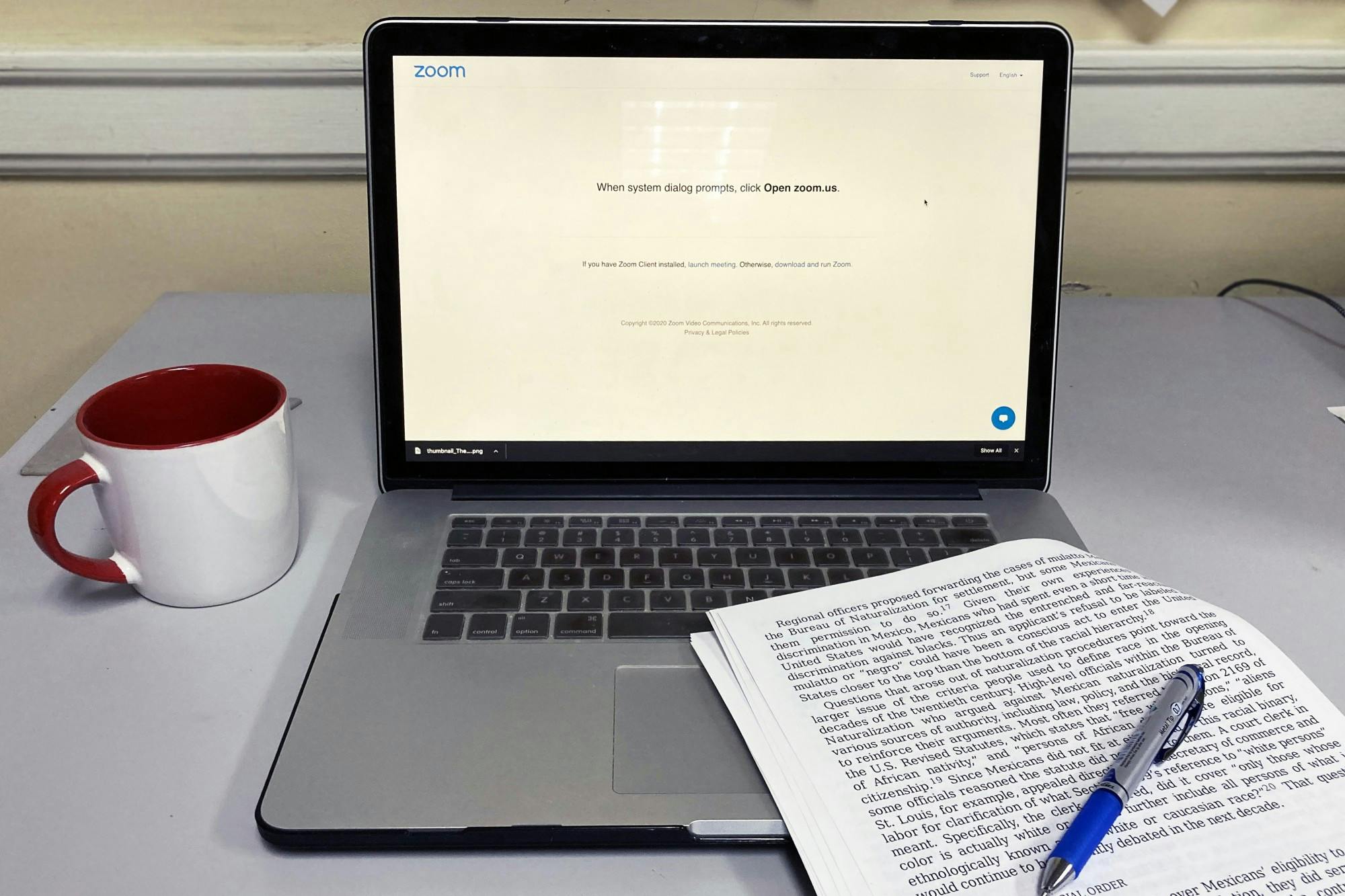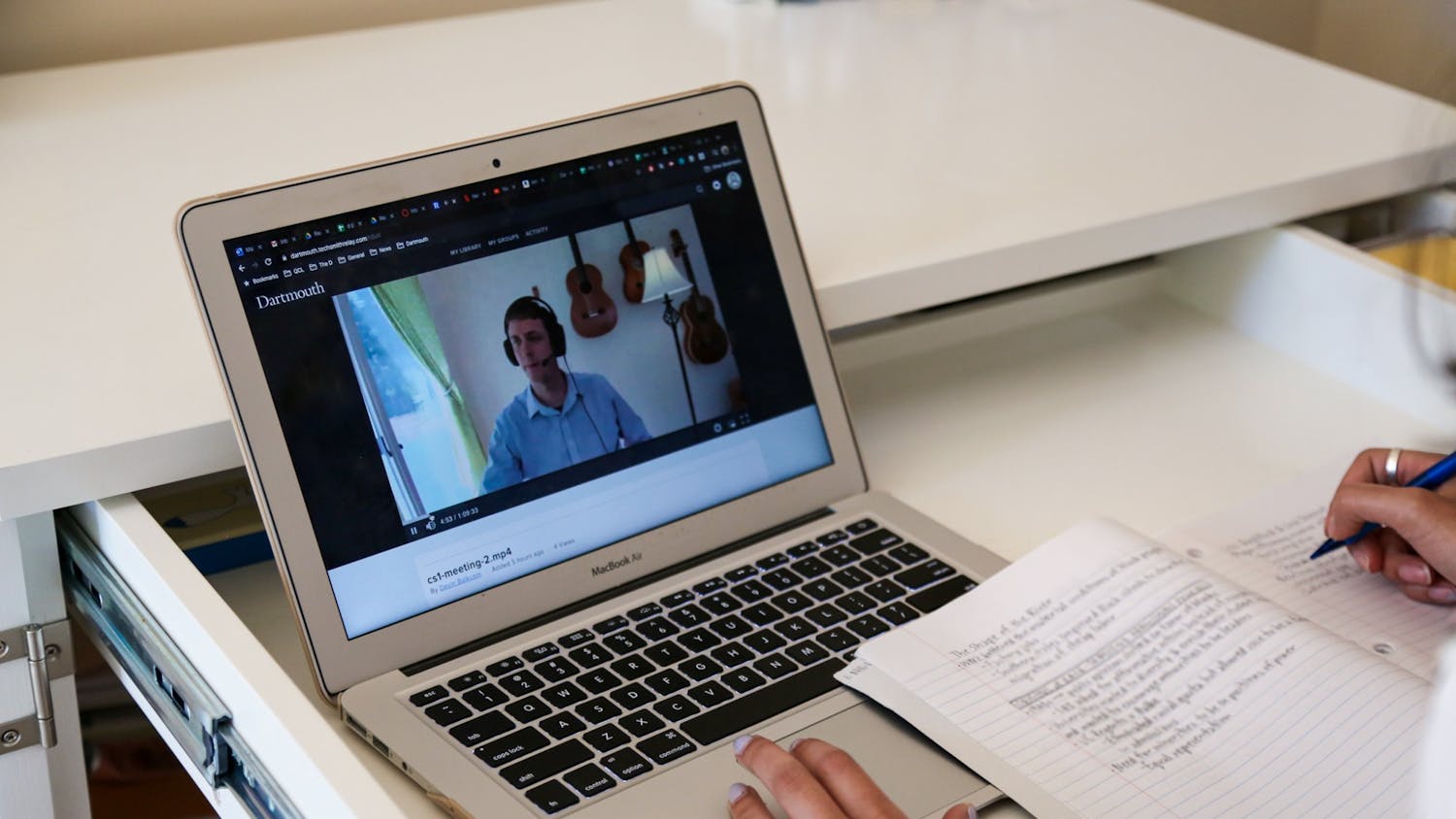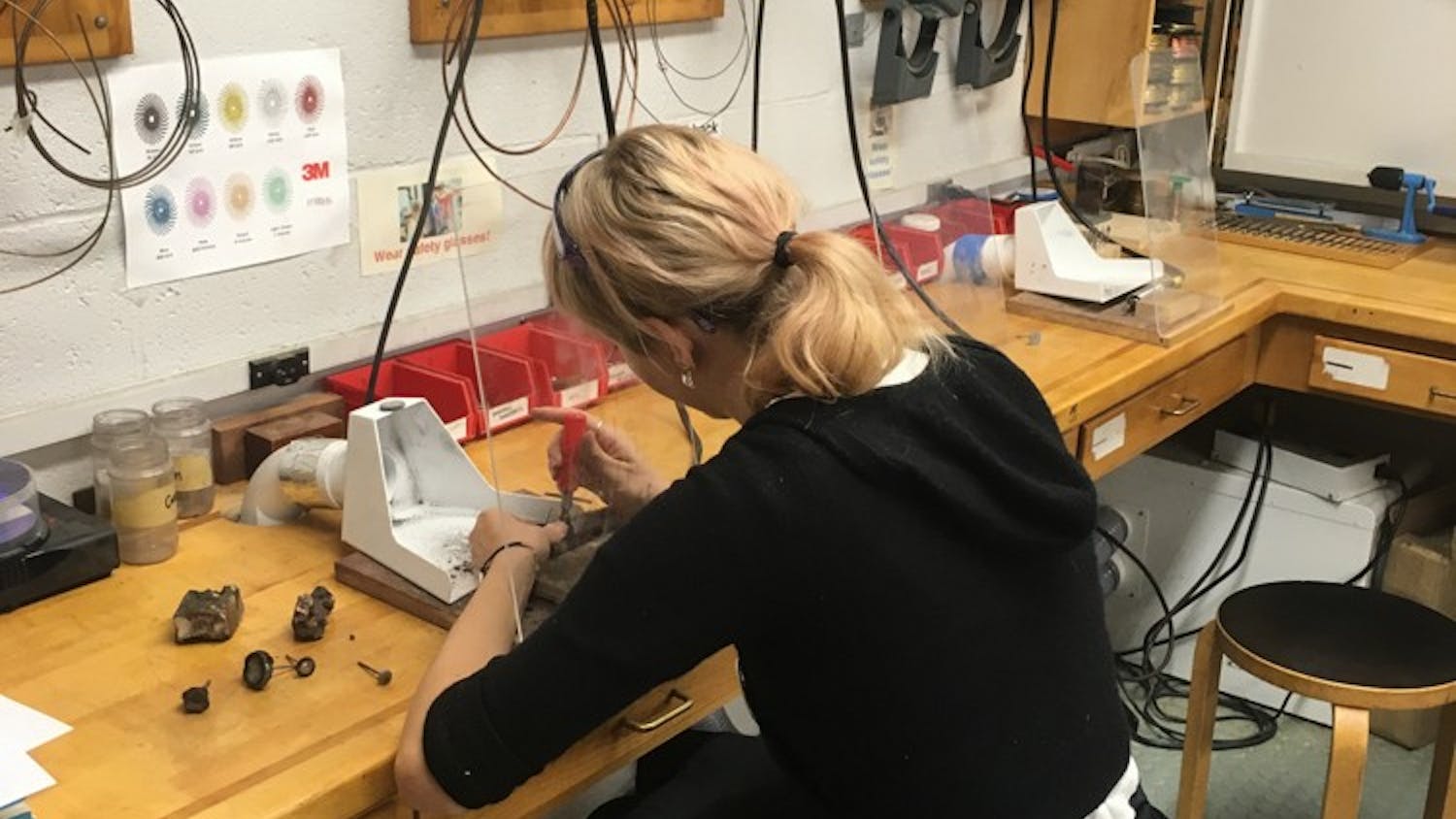While the video conferencing platform Zoom has made class possible during the COVID-19 pandemic, some students say they have struggled to make connections due to the lack of casual interactions common during in-person classes.
In remote learning surveys conducted by the Dartmouth Center for the Advancement of Learning, Learning Design and Technology, the Dartmouth Library and Information Technology and Consulting, students “strongly expressed a need for a better ‘sense of connection’ within their courses,” according to an email statement from Erin DeSilva, assistant director of Learning Design and Technology. Even though some students have now returned to campus and reunited with friends, many say that in large part due to remote classes, connection is still lacking.
Chris Gaige ’23 said that making friends has been difficult without casual in-person interactions. He noted that during his first year at Dartmouth, he often bonded with friends by getting a meal together after class.
“With Zoom, once the class ends you just click off and you're done,” he said. “... It's an abrupt ending compared to in-person [classes].”
Psychological and brain sciences and Geisel School of Medicine professor William Hudenko, whose research focuses on using technology to improve the delivery of mental health care, said that many aspects of virtual learning detract from natural conversation. For example, he said students may be unaccustomed to the unfamiliar etiquette of Zoom, such as muting your microphone when not speaking. Additionally, distractions around students, like a roommate, may draw their attention away from focused, face-to-face conversation with other students, he said.
In addition, Zoom does not provide students the opportunity to talk with each other before or after classes, which Hudenko said are “critical moments and times where you continue to build [interpersonal] relationships.”
Christine Wu ’24 agreed that Zoom classes have failed to foster a sense of community.
“Being on Zoom, you don't get the same feeling of in-person class,” she said. “So it's harder to find people to work on homework or [to connect] with your classmates.”
Students and professors alike have worked to find strategies to ward off loneliness. Hudenko said he has tried to foster relationships with his students outside of the classroom by organizing hour-long, socially-distanced walks around Occom Pond.
“I really want my students who are physically on campus to be able to continue to have that type of connection and to feel like they have a greater ability to talk about things beyond just the course material,” Hudenko said. “I found it to be an extremely valuable way to build that bond and that time and open that space to help students to just vent if they need to.”
Gaige and Wu both said that group work has helped them form relationships with classmates. Gaige specifically mentioned a debate series in his class GOVT 6, “Political Ideas,” taught by government professor James Murphy.
“Meeting up with those teams outside of class to formulate arguments, I felt like we got to know each other better,” Gaige said. “And because we were all relying on each other to contribute something to that argument, we ended up coming out of those sessions with a lot more appreciation for what everyone had to contribute. I feel like we connected as a result.”
DeSilva added that breakout rooms are an important tool for strengthening bonds between students. She added that professors need to formally craft the “sense of connection” that normally exists as students walk in and out of the classroom.
Student Wellness Center director Caitlin Barthelmes said that professors should keep mental health as a top priority, especially during the pandemic, when students may need support.
“For people who are creating classroom environments or experiences for students, having well-being in the forefront of your mind … shouldn't just be kind of an additional luxury,” Barthelmes said.
The Counseling Center has also been working to support students during a time in which, according to psychologist and Counseling Center director Heather Earle, “it is hard to make meaningful connections.”
Through discussion groups and workshops on managing anxiety, depression and loneliness, Earle said she hopes to provide creative ways to help students cope with the new environment.
The Student Wellness Center has also developed mindfulness and mediation programs to help students “embrace a growth mindset,” Barthelmes said.
“When people hear meditation and mindfulness, I think they often think it's a solo activity,” Barthelmes said. “But when you are in a safe space, even in a Zoom room, when you see other people and are in that community together, there is something additional that you can feel in that moment — an additional feeling of connectedness.”




